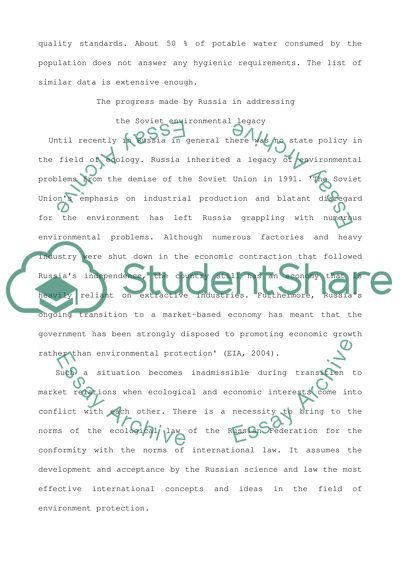Cite this document
(“Russian Environmental Policy Essay Example | Topics and Well Written Essays - 1500 words”, n.d.)
Russian Environmental Policy Essay Example | Topics and Well Written Essays - 1500 words. Retrieved from https://studentshare.org/politics/1504527-russian-environmental-policy
Russian Environmental Policy Essay Example | Topics and Well Written Essays - 1500 words. Retrieved from https://studentshare.org/politics/1504527-russian-environmental-policy
(Russian Environmental Policy Essay Example | Topics and Well Written Essays - 1500 Words)
Russian Environmental Policy Essay Example | Topics and Well Written Essays - 1500 Words. https://studentshare.org/politics/1504527-russian-environmental-policy.
Russian Environmental Policy Essay Example | Topics and Well Written Essays - 1500 Words. https://studentshare.org/politics/1504527-russian-environmental-policy.
“Russian Environmental Policy Essay Example | Topics and Well Written Essays - 1500 Words”, n.d. https://studentshare.org/politics/1504527-russian-environmental-policy.


